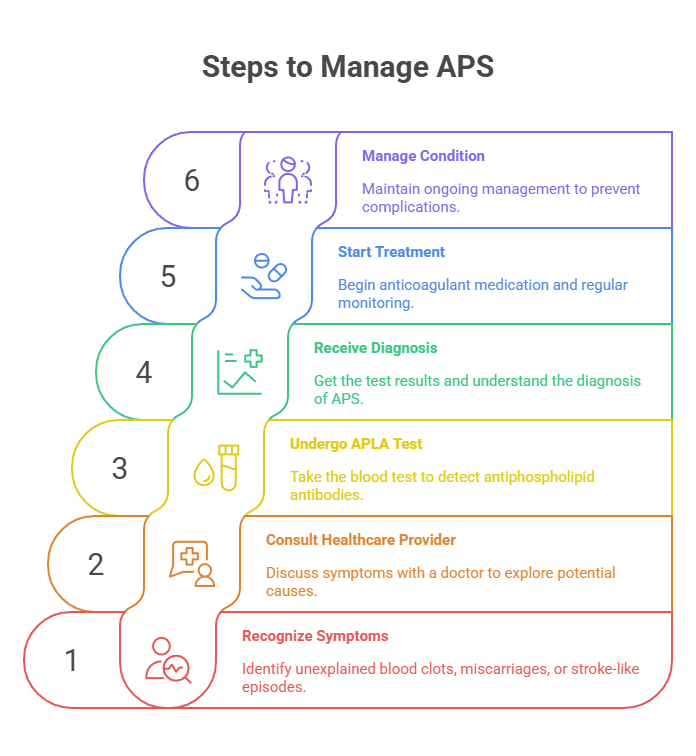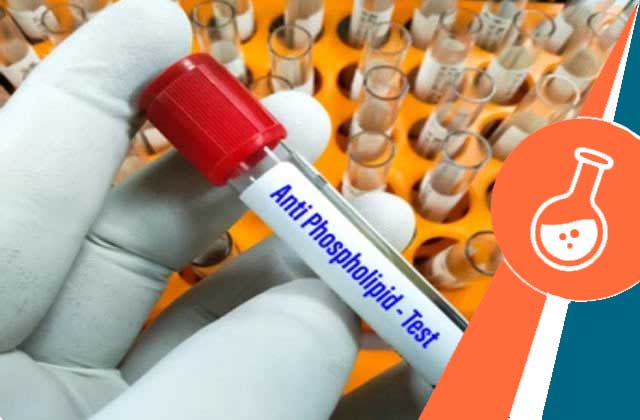
What Is An APLA Test?
An APLA test (Antiphospholipid Antibody IgG Test) is a diagnostic examination used to detect antiphospholipid antibodies in the blood. These antibodies mistakenly attack normal proteins, leading to an increased risk of blood clots in arteries and veins.
Antiphospholipid syndrome (APS) is associated with these antibodies and can result in conditions such as deep vein thrombosis (DVT), strokes, and recurrent miscarriages. Early detection through antiphospholipid testing allows for timely management and risk reduction. If you experience symptoms like blood clots, repeated miscarriages, or stroke, consult a healthcare provider.
About APLA Profile Test
Learn everything about the APLA Blood Test before you book lab test online. Understand the why, how, and what of this test.
Why Do Doctors Recommend An APLA Test?
APLA profile test or APLA Screening test detects antibodies against the phospholipids in the blood vessels. In simpler words, these are the agents our body produces against itself when it confuses the phospholipids as harmful elements. Your healthcare provider may suggest you take an APLA profile test in the following scenarios:
- Experiencing multiple miscarriages
- Developing abnormal blood clots potentially resulting in heart attacks or strokes
- Being diagnosed with antiphospholipid antibody syndrome, characterised by miscarriages, low platelet count, and abnormal blood clots
- Being diagnosed with cancer
- Experiencing unexpectedly prolonged activated partial thromboplastin time (aPTT) (a blood test that characterises coagulation of the blood
What Are Some Tests Included In APLA Test Panel?
The APLA profile test consists of three tests: Lupus Anticoagulant Test, Beta-2 Glycoprotein 1 (B2GP) Antibody Test, and the Anti-Cardiolipin Antibody Test. A person is diagnosed with APLA syndrome only when one of the three tests displays the presence of APLAs on two separate occasions within the span of three months.
How To Prepare For the APLA Test?
The steps below help you ensure that your APLA Blood test provides the most accurate information about your health.
- Fasting requirements: The APLA test may not require fasting before the test. Follow the doctor’s instructions regarding the duration of fasting if required for the correct result.
- Medication guidelines: Tell your healthcare provider about all the drugs, supplements or herbal remedies you are taking, as some substances may affect test results. Follow any specific instructions regarding drug adjustment before testing.
- Contact to doctor: Share your entire medical history with existing conditions or symptoms to help explain test results.
What Happens During APLA Testing?
An APLA Test only takes a few minutes.
- As per the scheduled time of the blood test, a Lab Technician who usually takes blood samples will arrive.
- A thin needle will be used to draw blood from your arm’s vein.
- The needle might cause a mild pinch and some discomfort.
- The lab technician then fills a collection tube with blood and then removes the needle from the skin.
- They place a small bandage on the arm
Please note: There might be slight pain or bruising at the spot of insertion, but most of the symptoms go away quickly.
Finding APLA Profile Test
Should you book blood test online to check your health condition or go to the nearest clinic and get it done by a medical professional? Let’s Find Out
Can I Take an APLA Test At Home?
Yes, the APLA Test can be taken at home. HealthcareOnTime’s at-home lab testing service, in association with thyrocare, provides a convenient and efficient way to get blood testing done from the comfort of your own home without the need for a doctor’s visit or a trip to a lab. It’s important to note that it’s always a good idea to consult with an expert healthcare provider about any queries you may have about your test results.
How Much Does APLA Test Cost?
The APLA test price varies significantly depending on many factors:
- Location: The APLA test prices in India may vary depending on the city or the region in which the test is conducted. For example, in Bangalore or Mumbai, it might be expensive as compared to small towns.
- Type of facility centres: The APLA test cost also varies between private hospitals, government hospitals, and diagnostic centres. Cost is lower in government hospitals as compared to private ones.
- Healthcare centres: Diagnostic centres, laboratories and hospitals may have different APLA test prices. It depends upon the benefits and reputation of the healthcare centre.
- Insurance Coverage: Individuals with health insurance can cover partial or all costs depending on their policy coverage and network providers.
- Additional services: Additional services such as home sample collection, express test results, or additional charges for special management may be paid, which contributes to the overall APLA test price.
Generally, the APLA test cost in India ranges from Rs. 500 to Rs. 6000. By opting for HealthcareOnTime lab test at-home facilities, you can access the APLA test at the cost of INR 816.
Test Results & Interpretation
You received your APLA blood test results but still need help determining whether they fall within the normal range. Read this section to find out if your results are within the APLA normal range.
What Do APLA Test Results Mean?
APLA blood test results1 can vary based on factors like age, gender, and health history. Negative means no antibodies are found, while low to moderate levels might stem from recent health issues or medication. High levels suggest a higher risk of blood clots, but further testing may be needed. Treatment decisions depend on your overall health and doctor’s guidance.
What Is an APLA Test Normal Range?
APLA screening test is usually found to return with values in the following ranges-
Results in U/ml | Interpretation |
Less than 12 | Negative |
12 to 18 | Additional tests required |
More than 18 | Positive |
These ranges apply to both IgG (Immunoglobin G) and IgM (Immunoglobin M tests). If your APLA IgG test results lie between 12 and 18 U/ml, your healthcare provider may recommend additional tests or another round of tests. If Antiphospholipid IgG is in the normal range it indicates that you do not have to worry about vulnerability to blood clots or autoimmune reactions.
What Medical Conditions Can Cause High APLA Levels?
If Antiphospholipid Antibodies (IgG) test results in high levels, it can be associated with several medical conditions. Here are some conditions linked to elevated APLA levels:
Antiphospholipid Syndrome (APS):
- An autoimmune disorder where the immune system produces abnormal antibodies that attack tissues.
- Results in blood clots in veins (deep vein thrombosis), arteries (strokes), and other organs.
- Associated with recurrent miscarriages and stillbirths during pregnancy.
Cardiovascular Diseases:
- High APLA levels may increase the risk of heart disease, heart attacks, heart failure, and peripheral artery disease.
Neurological Disorders:
- Chronic headaches, migraines, dementia, and seizures can occur due to blood clots blocking brain blood flow.
Thrombocytopenia:
- Low blood platelet counts, lead to bleeding episodes, especially from the nose and gums.
Rash and Skin Manifestations:
- Some individuals develop a red rash with a lacy, net-like pattern.
Remember to consult a healthcare provider for accurate diagnosis and personalised management if you suspect elevated APLA levels or related symptoms.
What Medical Conditions Can Cause Low APLA Levels?
Having a lower than normal level of APLA levels is less frequent than having an elevated level. This could suggest the presence of the following conditions:
Alpha-1 Antitrypsin Deficiency:
- An inherited genetic disorder resulting in low levels of the protein AAT (Alpha-1 antitrypsin).
- Associated with lung and liver damage.
- Increases the risk of emphysema, cirrhosis, and panniculitis.
Hypophosphatasia:
- A congenital disorder affecting bone growth.
- Results in low levels of alkaline phosphatase (ALP) in the blood.
Hypogammaglobulinemia:
- Various conditions leading to low levels of immunoglobulins (antibodies).
- Examples include specific antibody deficiency, Wiskott-Aldrich syndrome, and ataxia-telangiectasia.
Other Factors:
- Malnutrition, liver disease, and certain medications can also contribute to low APLA levels.
Consult a healthcare provider for accurate diagnosis and personalised management if you suspect low APLA levels or related symptoms.
More Related Tests
Why To Book with HealthCareOnTime

17 Crores+ Samples Processed

World Class Technology Labs

25+ Years of Trust & Experience











